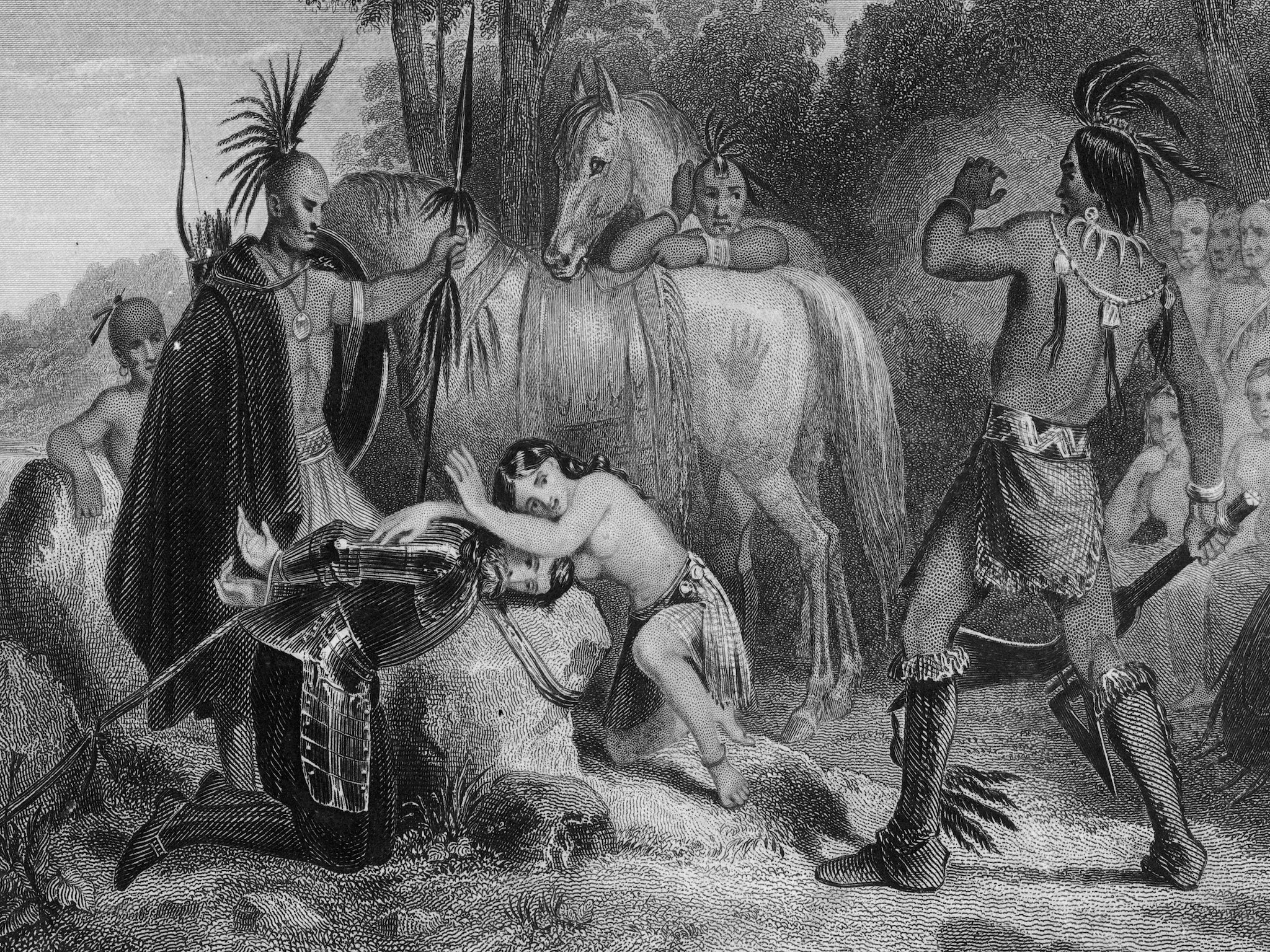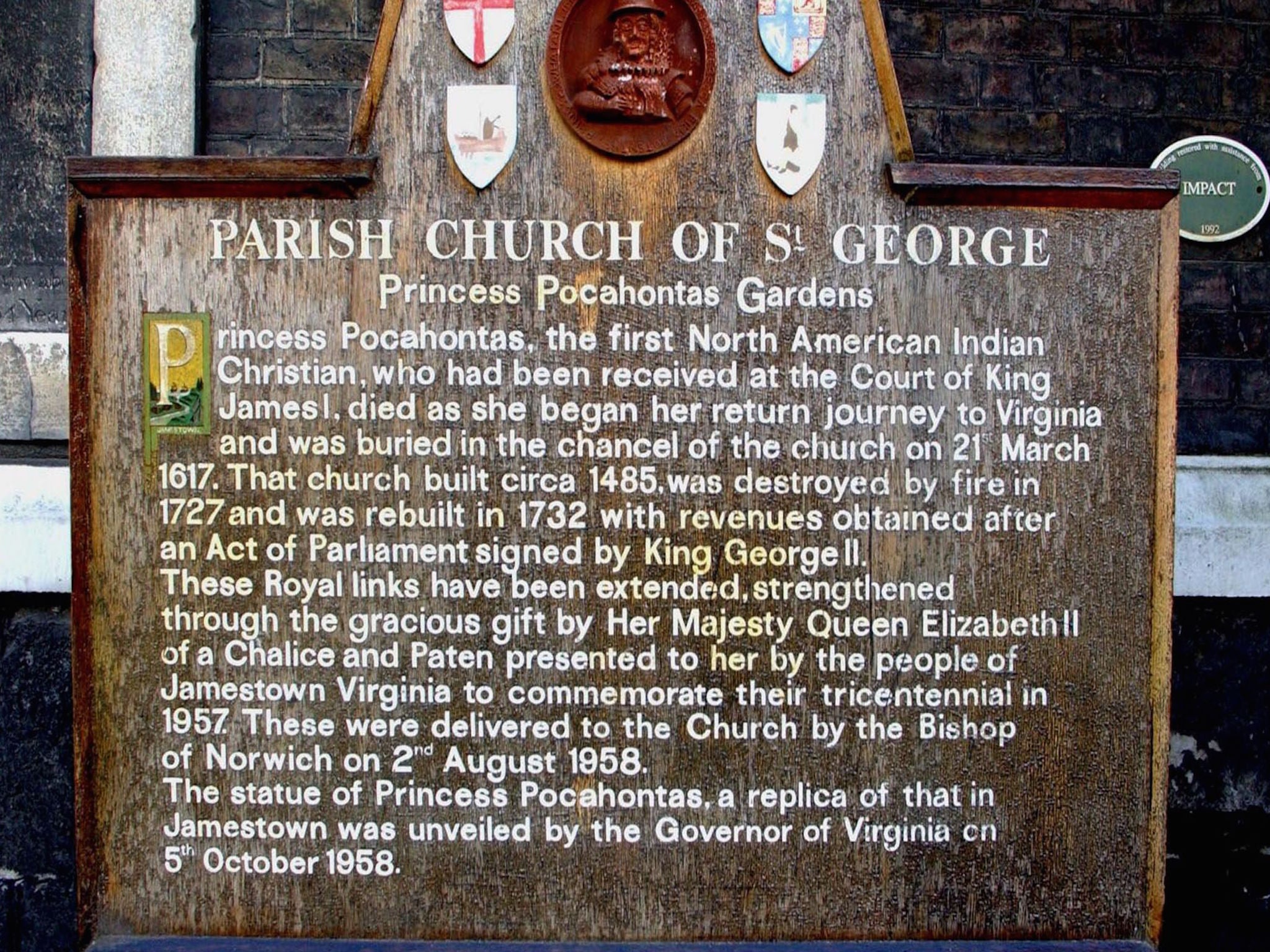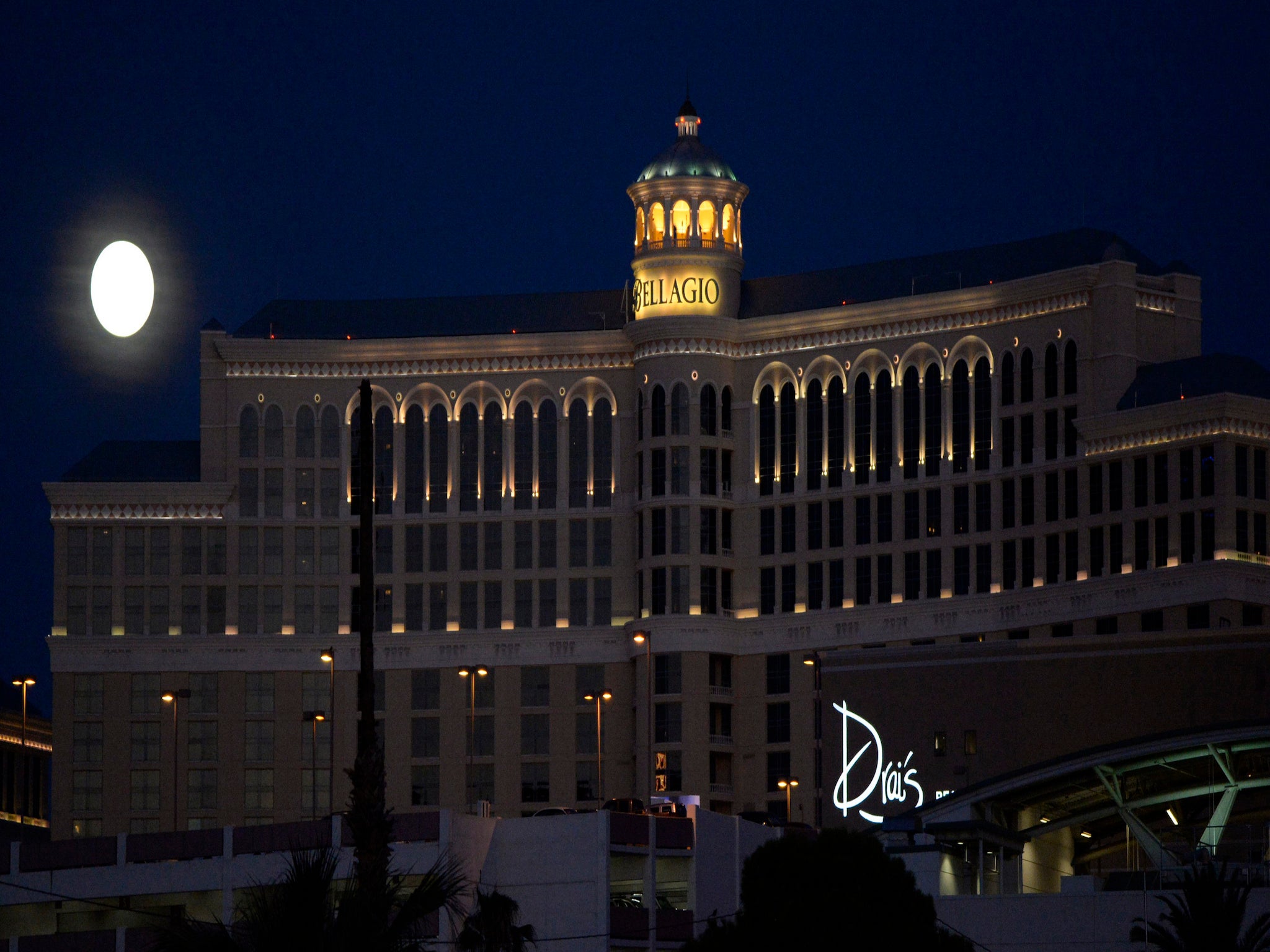Pamunkey nation: Pocahontas' tribe 'struggling to survive' as it seeks official recognition of its Native American heritage
Tribe says recognition would grant it access to funds for education and health care - amid a battle against a number of lobbying powers

Your support helps us to tell the story
From reproductive rights to climate change to Big Tech, The Independent is on the ground when the story is developing. Whether it's investigating the financials of Elon Musk's pro-Trump PAC or producing our latest documentary, 'The A Word', which shines a light on the American women fighting for reproductive rights, we know how important it is to parse out the facts from the messaging.
At such a critical moment in US history, we need reporters on the ground. Your donation allows us to keep sending journalists to speak to both sides of the story.
The Independent is trusted by Americans across the entire political spectrum. And unlike many other quality news outlets, we choose not to lock Americans out of our reporting and analysis with paywalls. We believe quality journalism should be available to everyone, paid for by those who can afford it.
Your support makes all the difference.The Native American tribe that first met English settlers and which counts Pocahontas as one of its most famed ancestors, is fighting against powerful opponents - including the casino giant MGM - for official recognition it believes would help its battle for survival.
Kevin Brown and the 207 other members of the Pamunkey tribe are due to hear by the end of the month whether they will be recognised by the US Bureau of Indian Affairs. Recognition would allow them to receive government money for health care, education and housing.
"We are struggling to survive," the tribe's elected chief, Kevin Brown, told The Independent. "We are losing culture with each generation. We are losing blood."
The tribe has a celebrated history; it was among the first to meet with English settlers, including John Smith, and its gifts of food were crucial in helping the new arrivals survive early winters. The tribe is one of just two that retain reservation lands fixed for them in 1646 and 1677 treaties with the English government.

Pocahontas, daughter of Chief Powhatan and who according to legend saved the life of Smith, died after visiting Britain and was eventually buried in a church in Gravesend.
But the tribe, whose numbers have dwindled from around 20,000 when the English arrived, is facing a major struggle.
The Washington Post reported that the decision to grant recognition is under intense scrutiny because recognising the tribe – they would become the first in Virginia recognised in this way – would make them eligible to open casinos in a state that is strongly opposed to such gambling ventures.
Black senators also lobbied the government not to recognise the tribe on the grounds that its members had opposed marriage with African Americans. The Congressional Black Caucus called for a federal probe of the tribes rules and highlighted a tribal law that purportedly banned marriage to anyone who was not White or Indian.
Mr Brown said the tribe had been seeking recognition from the government for more than 35 years and that official status would help it financially and politically.

Powerful interests lobbying against the Pamunkey.
Recognition of the tribe would allow it to establish casinos on its land despite state legislation. And while Mr Brown said the tribe has no immediate interest in emulating other Native American tribes who have established such ventures on their land as a source of income, the possibility has alarmed casino giant MGM which is building a $1.2bn. gambling complex on the border of Northern Virginia in Maryland.
The company has objected to the tribe being granted official status. Local businesses have also reportedly objected as they fear the tribe would be able to sell petrol, alcohol and cigarettes without charging state taxes.
Last year, MGM Resorts International, whose properties include The Bellagio and New York-New York in Las Vegas - issued a lengthy document objecting to the tribe being granted official status.
A company spokesman, Gordon Absher, said MGM was supportive of the tribal gaming industry but had urged a review of the application.
He added: "Given the increasingly competitive environment for both tribal and commercial casino gaming, it is important the criteria for acknowledgement follow the same established procedures applied to previous applicants."
Subscribe to Independent Premium to bookmark this article
Want to bookmark your favourite articles and stories to read or reference later? Start your Independent Premium subscription today.
Join our commenting forum
Join thought-provoking conversations, follow other Independent readers and see their replies
Comments